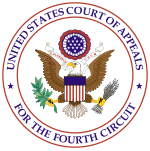King v. Burwell
| King v. Burwell | |
|---|---|

|
|
| Argued March 4, 2015 Decided June 25, 2015 |
|
| Full case name | David King, et al., Petitioners v. Sylvia Burwell, Secretary of Health and Human Services, et al. |
| Docket nos. | 14-114 |
| Citations | 576 U.S. ___ (more) |
| Argument | Oral argument |
| Opinion announcement | Opinion announcement |
| Holding | |
| Section 36B of the ACA provides for subsidies under both federally run and state-run exchanges. The wording "...established by the State" was superfluous when read within "the broader structure of the Act". | |
| Court membership | |
| Case opinions | |
| Majority | Roberts, joined by Kennedy, Ginsburg, Breyer, Sotomayor, Kagan |
| Dissent | Scalia, joined by Thomas, Alito |
| Laws applied | |
| Patient Protection and Affordable Care Act | |
| King v. Burwell | |
|---|---|
 |
|
| Court | United States Court of Appeals for the Fourth Circuit |
| Argued | May 14, 2014 |
| Decided | July 22, 2014 |
| Case opinions | |
| The plaintiffs contend that the IRS’s interpretation is contrary to the language of the statute, which, they assert, authorizes tax credits only for individuals who purchase insurance on state-run Exchanges. For reasons explained below, we find that the applicable statutory language is ambiguous and subject to multiple interpretations. Applying deference to the IRS’s determination, however, we uphold the rule as a permissible exercise of the agency’s discretion. | |
| Court membership | |
| Judge(s) sitting |
Stephanie Thacker, Roger Gregory, Andre M. Davis |
| Keywords | |
| Internal Revenue Service, Affordable Care Act | |
| Halbig v. Burwell | |
|---|---|

No. 14-5018
|
|
| Court | United States Court of Appeals for the District of Columbia Circuit |
| Argued | March 25, 2014 |
| Decided | July 22, 2014 |
| Case history | |
| Prior action(s) | Summary judgment for government defendants, 2014 WL 129023 (D.D.C. January 15, 2014) |
| Subsequent action(s) | Rehearing en banc ordered (D.C. Cir. September 4, 2014). |
| Case opinions | |
| The IRS does not have the statutory power to grant subsidies to Federally-established insurance marketplaces known as exchanges established under the Affordable Care Act, as the enabling legislation defines exchanges as being established by states themselves. Reversed and remanded with instructions to grant summary judgment to the appellants and to vacate the IRS rule, 2–1. Opinion by Judge Griffith, concurrence by Judge Randolph. Judge Edwards dissents. | |
| Court membership | |
| Judge(s) sitting |
Thomas B. Griffith, A. Raymond Randolph, Harry T. Edwards |
| Keywords | |
| Internal Revenue Service, Affordable Care Act | |
King v. Burwell, 576 U.S. ___ (2015), was a decision by the Supreme Court of the United States interpreting provisions of the Patient Protection and Affordable Care Act (ACA). The Court's decision upheld, as consistent with the statute, the outlay of premium tax credits to qualifying persons in all states, both those with exchanges established directly by a state, and those otherwise established by the Department of Health and Human Services.
The petitioners had argued that the plain language of the statute provided eligibility for tax credits only to those persons in states with state-operated exchanges. The Court rejected this interpretation. Rather, the Court found the disputed clause to be ambiguous, and that it ought to be interpreted in a manner "that is compatible with the rest of the law." The majority opinion stated: "Congress made the guaranteed issue and community rating requirements applicable in every State in the Nation. But those requirements only work when combined with the coverage requirement and tax credits. So it stands to reason that Congress meant for those provisions to apply in every State as well."
King v. Burwell, Halbig v. Burwell, Pruitt v. Burwell, and Indiana v. IRS were federal lawsuits challenging U.S. Treasury regulation, 26 C.F.R. § 1.36B-2(a)(1), issued under the Patient Protection and Affordable Care Act (ACA). The challengers argued that the ACA allows for certain subsidies only on state-established exchanges, and that the regulation as implemented by the Internal Revenue Service (IRS), providing for subsidies on state-run exchanges as well as federal exchanges, exceeded the authority Congress granted to it. The Competitive Enterprise Institute coordinated and funded the King and Halbig lawsuits.
...
Wikipedia
